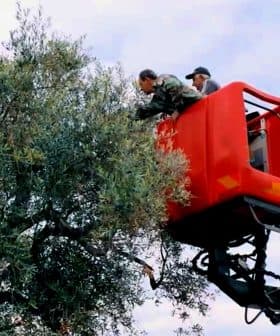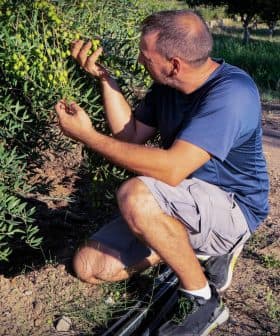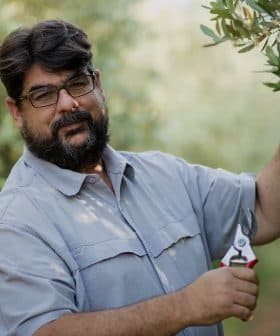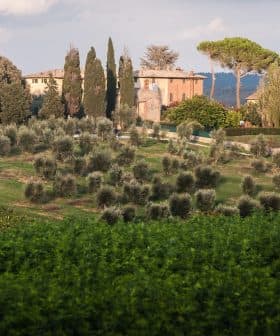Second Wave of Covid Hampers Harvest in Greece
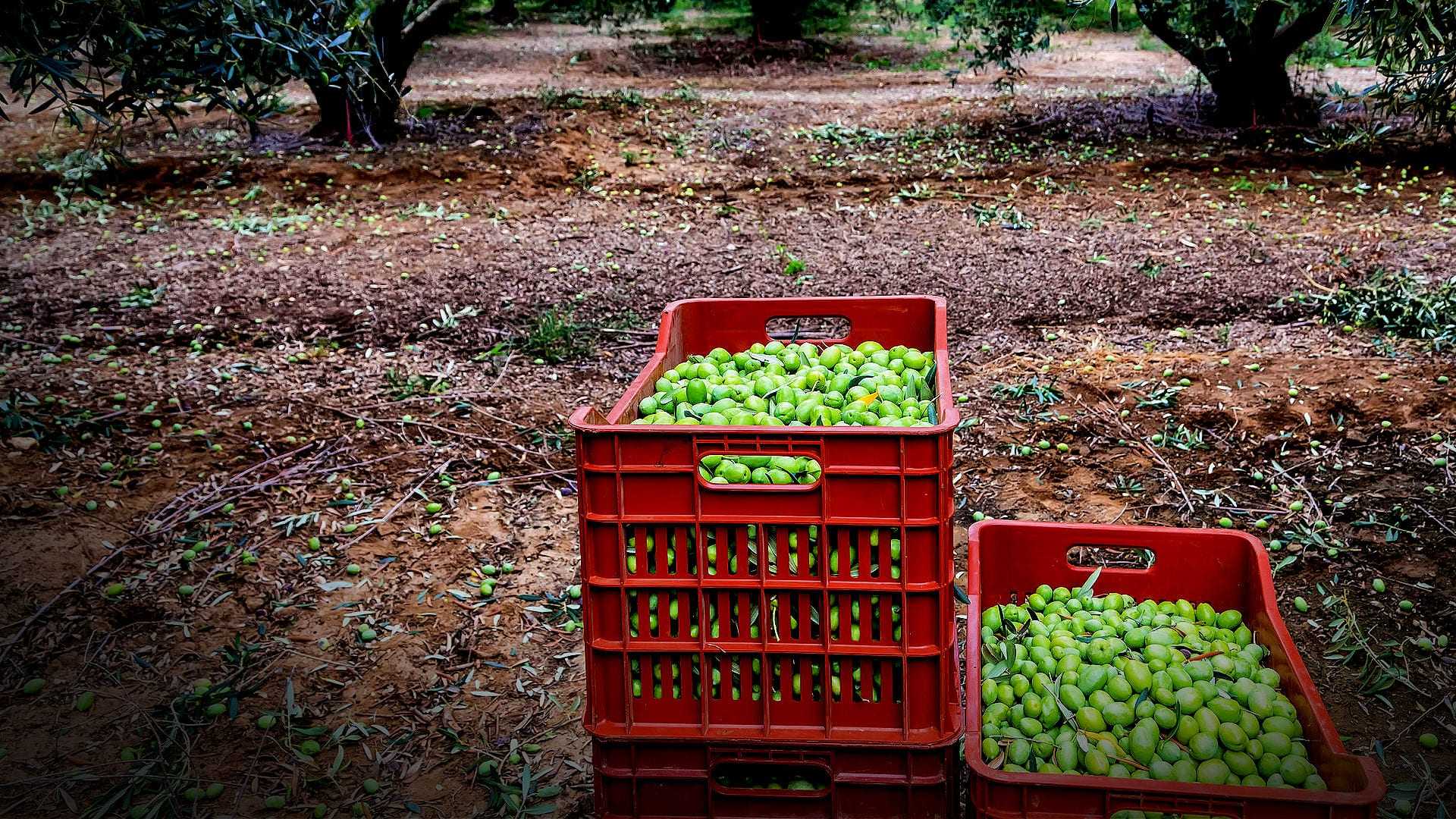
The Greek olive oil sector is facing challenges due to the Covid-19 pandemic, with early harvesting potentially contributing to the spread of the virus in some regions. Labor shortages and decreased production are expected as a result of fears of contracting the virus, strict lockdown measures, and delays in hiring foreign workers, leading to uncertainty about the future of the industry.
The Covid-19 pandemic continues to cause headaches across the Greek olive oil sector, with the most recent outbreak potentially leading to labor shortages and decreasing the production of the current season.
Some health experts have even identified the start of early harvesting in Greece as a potential cause for the spread of the novel coronavirus in some regions of the country.
The olive harvest hangs on a knife-edge here.
“There is an increase of the coronavirus cases in areas that were off the map of the highly-affected territories until recently, including Fokida, Messinia, Lesvos and Crete,” Vana Papaevagelou, assistant professor of pediatric infectious diseases of Athens University, said during a press conference of the Ministry of Health.
“The outbreak of the virus in these areas may be related to the olive harvest,” she added.
See Also:2020 Harvest UpdatesDue to the fear of contracting Covid-19 and the shortage of workers, the olives in many areas are likely to be left unpicked, ultimately leading to a reduced olive oil yield.
“The uncertainty caused by the pandemic made many producers start harvesting in October, which is too early in the season,” mill owner Voula Kaplanis, from the village of Solomos on the Peloponnese, told Olive Oil Times.
“Even so, we get olive oil of high quality since there are no signs of the fruit fly,” she added. “But other producers are afraid of becoming infected with the coronavirus and have left their olives unharvested, so many of our clients have not yet shown up to process their crop. No one can tell how things will evolve through January when we wrap our operations up.”
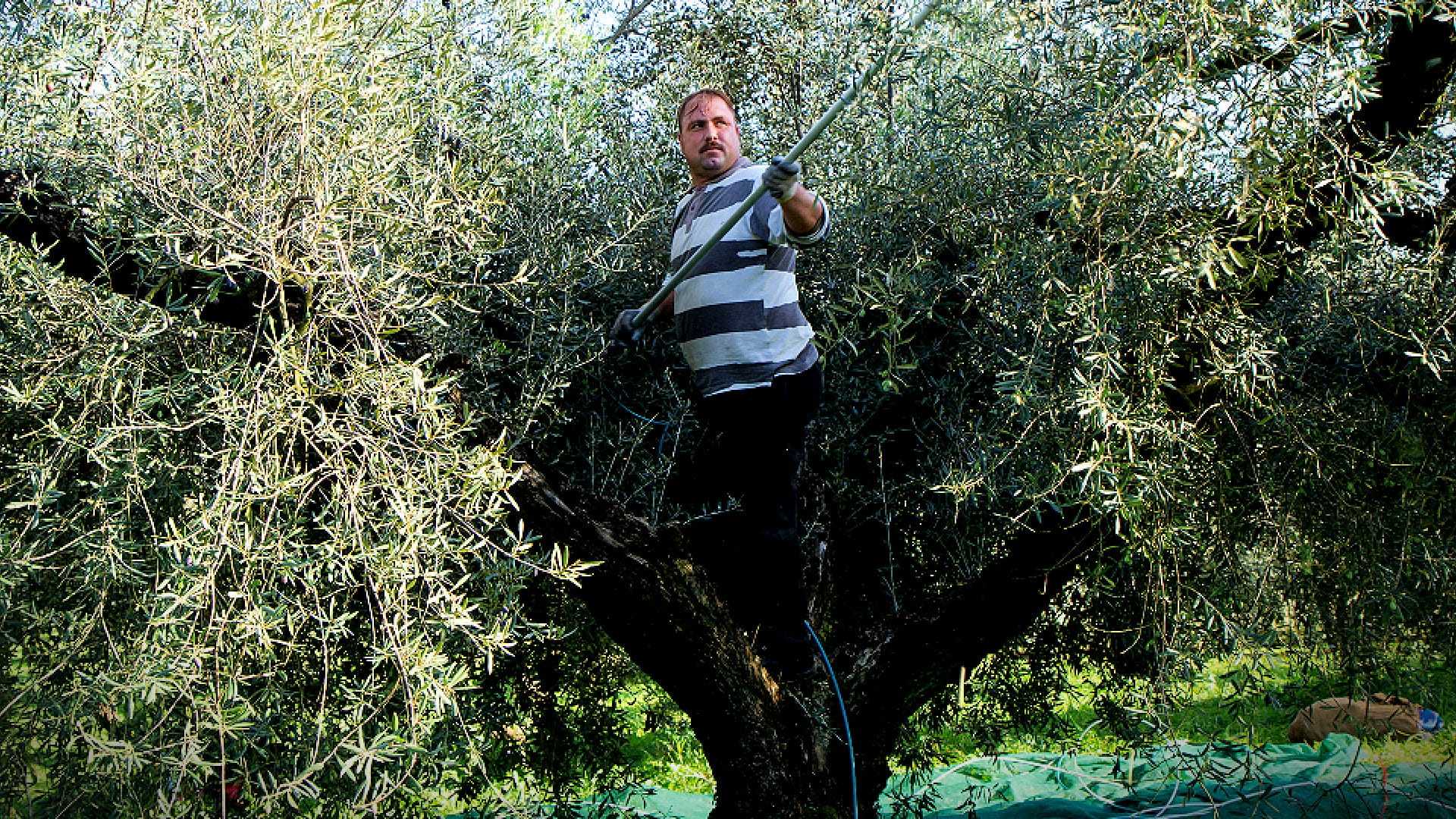
Further complicating the matter, a new nationwide lockdown imposed in early November introduced more strict international travel restrictions and a prohibition on travel within the country, hampering the daily commute of growers and the available land workers to the olive groves.
During the lockdown period, growers and producers must be able to prove ownership of the groves, whereas proof of employment is required for workers when traveling to the groves for the harvest.
Furthermore, the sluggish procedures in place for hiring foreign workers were pinpointed by some producers as a cause for the lack of workforce in the country.
“There is a great delay in calling in workers [from abroad],” Kostas Apostolopoulos, the head of the Handrinos agricultural association in Messinia, said. “The pertinent regional offices are being choked by bureaucracy.”
“The main part of the harvest is expected to begin in 10 days, and we do not know how the quarantine will impact the travel of land workers and the transportation of the olives from the field to the mill,” he added.
See Also:Greece Pledges €126M Aid to Producers for Pandemic-Related LossesYiannis Ravvas, an olive grower and mill owner based in Fthiotida, in central Greece, was quick to describe a grim harvesting season in the region.
“The olive harvest hangs on a knife-edge here,” Ravvas said. “Foreign laborers left when the first Covid-related travel measures were announced, and Greek workers are almost impossible to come by.”
“We will get on with the harvest with everything we have. Despite the olive trees being in their natural cycle of a low yield this year, we were expecting a substantial production,” he added. “But the ugly truth is that the olive fruits have been heavily affected by the fruit fly, which has spread almost everywhere affecting the quantity and most importantly the quality of our olive oil.”
Another significant concern for Ravvas is the price of extra virgin olive oil, which is currently lower than the established prices in other olive oil producing territories of the country.
“Producers’ prices here are nothing to write home about, ranging between €2.50 ($2.96) and €2.80 ($3.31) per kilogram and rendering all our hard work and efforts pointless,” he said.
“The weird thing is that a couple of nearby big bottling facilities operate 24/7 to fulfill orders from abroad in times of strict measures and closures of many eateries almost everywhere, and I do not really understand how prices at origin are so low given the existing market demand,” he added.
However, things look better in some areas of Crete in terms of both the availability of workers and olive oil quality, as the owners of the Despina Blavakis olive oil mill near Heraklion told Olive Oil Times.
“Harvest started in October here and we expect to get olive oil of top quality,” the owners said. “There are some workers from Albania available, so the pandemic has not created significant obstacles in getting land laborers so far. And thankfully, the olive fruits are unharmed by the fruit fly, but we have to delay the harvest for some days since it has started to rain heavily in our area.”
“One kilogram of extra virgin olive oil currently sells for €2.50 ($2.96), which is really low,” they added. “We have already sold some quantities in bulk, but the riddle of low prices and the impact of the Covid-19 pandemic is difficult to solve and we are uncertain about the future.”



